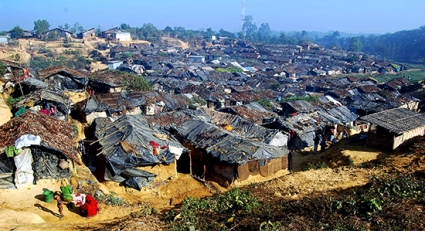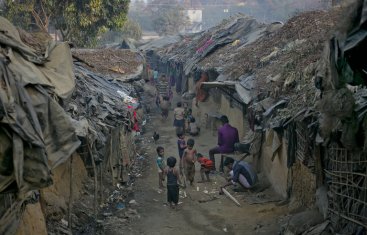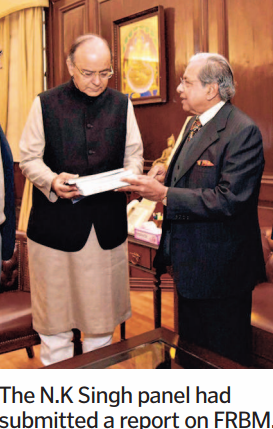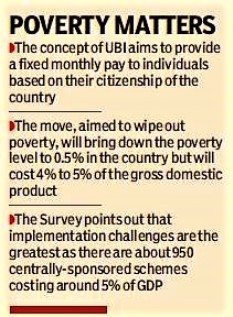THE HINDU – CURRENT NOTE 01 February
 Kathmandu meet to finalise SAARC budget, agenda
Kathmandu meet to finalise SAARC budget, agenda

Indian and Pakistani officials will meet to finalise the budget and agenda of the SAARC during the February 1-2 meeting in Kathmandu.
Meeting Agenda:
- The meeting will mark the beginning of the annual calendar of events of the organisation which failed to meet in Islamabad for a summit and is in focus as it is the first time high officials of member-countries will meet since the cancellation of the summit.
- Joint Secretaries in charge of SAARC affairs from member-states will hold the annual programming committee meeting in Kathmandu to finalise budget for the SAARC secretariat and the regional centres.
- The Planning Committee meeting indicates the continuing role of Nepal as the Chair of SAARC which was to have passed on to Pakistan last November.
- More than half of the members withdrew from the November 2016 summit objecting to cross-border terror from Pakistan.
- Following cancellation of SAARC summit in Islamabad, India has boosted support to other regional groupings like BIMSTEC and BBIN which aims to engage most of the SAARC members barring Pakistan.
 Rohingya refugees to be relocated on remote island
Rohingya refugees to be relocated on remote island

- Bangladesh government has set up a committee comprising state officials in the coastal districts, ordering authorities to help identify and relocate undocumented Rohingya refugees from Myanmar nationals to Thengar Char in the Bay of Bengal.
- Bangladesh has also asked its officials in the border districts to identify the Myanmar nationals who “illegally infiltrated” the country.
- The committee will assist transferring both registered and unregistered refugees from Myanmar to Thengar Char near Hatiya island in Noakhali district.
- Hatiya is situated on the estuary of the River Meghna and is a nine-hour journey away from the camps where the Rohingya have taken shelter.
- A controversial plan to relocate tens of thousands of Rohingya refugees from Myanmar to a remote island despite warnings it is uninhabitable and prone to flooding.
Rohingya Status:

- Some 232,000 Rohingya Muslims — both registered and unregistered — were already living in Bangladesh before more than 65,000 stateless Rohingya fleeing violence in Myanmar’s western state of Rakhine began entering the country last October.
- Most of those who fled to Bangladesh live in squalid conditions in refugee camps in Cox’s Bazar district, which borders Rakhine State and is home to the country’s biggest tourist resort.
- The island push came as members of Myanmar’s state-appointed body headed by Kofi Annan, tasked with finding long-term solutions for Rakhine state, visited refugee camps in Cox’s Bazar.
- The team also met with Bangladeshi officials at Cox’s Bazar, and was due to hold talks with Bangladesh Prime Minister Sheikh Hasina before their departure on Wednesday.
 Solar-powered water purifier developed
Solar-powered water purifier developed

- Researchers have developed a solar-powered purifier, which could provide a highly efficient and inexpensive way to turn contaminated water into potable water for personal use.
- The device could help address global drinking water shortages, especially in developing areas and regions affected by natural disasters.
- The system is created using extremely low-cost materials that makes near-maximum use of solar energy during evaporation.
- The team built a small-scale solar still. The device, called a “solar vapour generator,” cleans or desalinates water by using the heat converted from sunlight.
 ‘U.S. visa rules to hit Indian IT majors’
‘U.S. visa rules to hit Indian IT majors’
- A proposed legislation in the U.S. to overhaul norms covering the H-1B and other work visas will prove to be a challenge for the Indian IT sector: Nasscom
- The impact of bill on Indian IT companies would be significant as a majority of H-1B applicants are Indian nationals and work for IT services companies.
- The High-Skilled Integrity and Fairness Act of 2017 introduced in the U.S. House of Representatives is aimed at creating more jobs for U.S.-based employees.
- Bill is introduced which seeks to double the minimum salary required to be paid to holders of H-1B visas to $130,000, in a bid to prevent recruiters from bringing in low-cost workers into the country.
Stocks battered:
- Shares of most IT majors plunged on Tuesday following reports of the visa move. The BSE Information Technology index was the worst hit among all sectoral indices.
- The index slumped 292.54 points, or 2.96%. The benchmark Sensex declined 193.60 points, or 0.7%, to close at 27,655.96.
 Economic Survey wants modification of FRBM Act
Economic Survey wants modification of FRBM Act

Fiscal policy principles:
- India’s economic experience shows that the fiscal activism embraced by advanced economies — giving a greater role to counter-cyclical policies and attaching less weight to curbing debt — was not relevant for India.
- India’s fiscal experience has underscored the fundamental validity of the fiscal policy principles enshrined in the FRBM Act.
- Economic Survey pointed out that since the 2008-09 global financial crisis, internationally fiscal policy has seen a paradigm shift from the emphasis on debts to deficits, arguing for greater activism in flows (deficits) and minimising concerns about sustainability of the stocks (debt).
Fiscal deficit rules:
- The government has set a target for fiscal deficit (the gap between expenditure and revenue for the financial year) of 3.5% of GDP for FY’17, a lower target than the 3.9% set for 2015-16 which was achieved. In value terms, the 3.5% is Rs. 5.33 lakh crore.
- According to data released by the Controller General of Accounts, fiscal deficit in the April-December (2016-17) period was 93.9% of the Budget target against 87.9% for the same period a year ago. The April-December fiscal deficit in value terms was Rs. 5.01 lakh crore.
- There is a need for rules to contain fiscal deficits because of the proclivity to spend during booms and undertake stimulus during downturns, economy observed.
- A new version of FRBM is required for the 21st century as the fundamental validity of the fiscal policy principles remain valid.
 ‘Time ripe for discussions on Universal Basic Income’
‘Time ripe for discussions on Universal Basic Income’

- A Universal Basic Income (UBI) will be an efficient substitute for a plethora of existing welfare schemes and subsidies.
- The Economic Survey justified the introduction of UBI citing several reasons such as promoting social justice, reducing poverty and an unconditional cash transfer that lets the beneficiary decide how she uses the money and generating employment by promoting labour flexibility since it allows “individuals to have partial or calibrated engagements with the labour market without fear of losing benefits.”
Administrative efficiency:
- The move would bring in administrative efficiency as a direct cash transfer through a JAM (Jan Dhan-Aadhar-Mobile) platform would be more efficient compared to the existing welfare schemes.
- The report suggested that considerable gains could be achieved in terms of bureaucratic costs and time by replacing many of these central sector and centrally–sponsored schemes (CSS) with a UBI which accounted for about 5% of the GDP.
